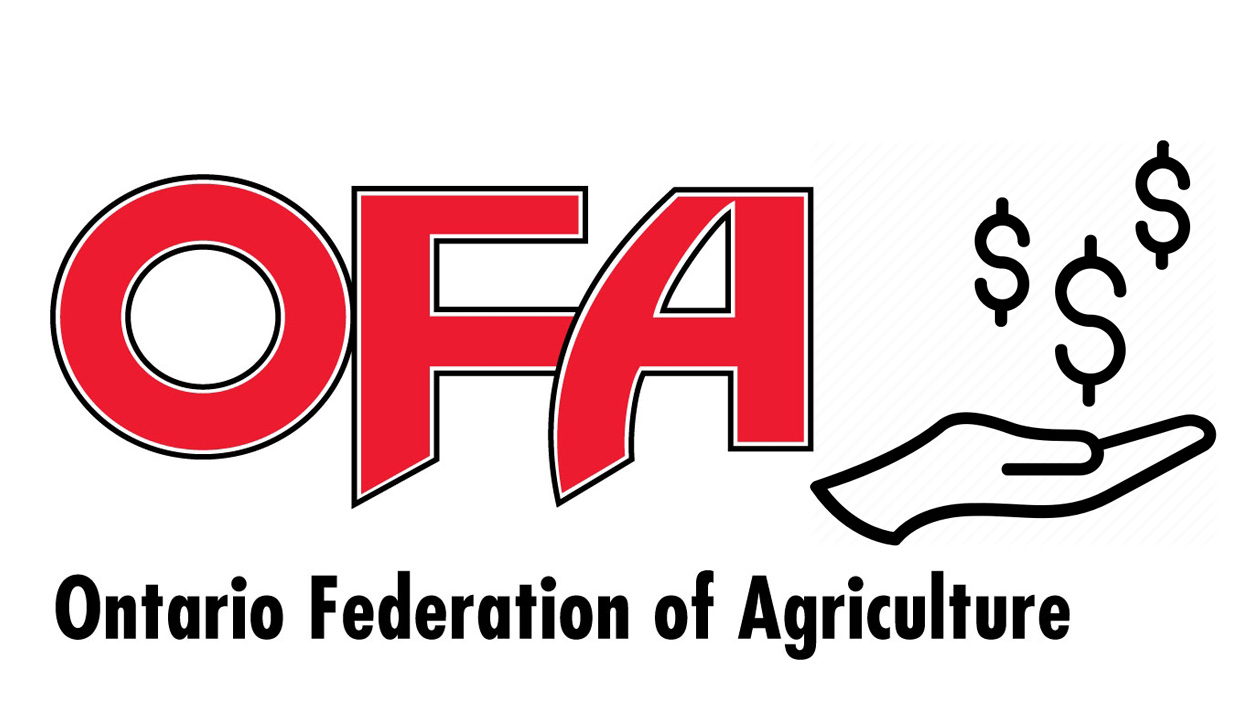In response to the COVID-19 pandemic, both the Canadian and Ontario government have announced financial assistance measures for individuals and businesses, including farm businesses. Included below is a complete summary of existing programs and new financial assistance measures that may be relevant to Ontario farm businesses.
We want to thank our partners at the Ontario Federation of Agriculture (OFA) for compiling all of this important information. The summary, which is updated as of April 3, is also available on OFA’s COVID-19 information and resources webpage, which can be accessed here: https://ofa.on.ca/information-and-resources-covid-19/.
And finally, if you have not already completed Equestrian Canada’s Equine Farm/Equestrian Facility Business profile Survey, we STRONGLY URGE you to do so. We are advocating on your behalf but we need numbers to demonstrate impact. Please help us, help you.
Stay safe.
The Board and Staff of Ontario Equestrian
New Programs
Canada’s $5 billion increase to Farm Credit Canada’s lending capacity
Overview: Farm Credit Canada (FCC) received an enhancement to its capital base that will allow for an additional $5 billion in lending capacity. Focus will be on assisting the industry in addressing cash flow challenges so that businesses can remain focused on business-critical functions.
Who is eligible: Farmers, agri-businesses, and food processors.
Website for more details: https://www.fcc-fac.ca/en/covid-19.html
How to apply: Customers facing financial pressure are encouraged to contact their FCC relationship manager or the FCC Customer Service Centre at 1-888-332-3301 to discuss their individual situation and options.
Canada’s Advance Payment Program
Overview: The federal government announced up to $173 million in loan repayment deferrals under the Advance Payments Program (APP) to help farmers with an APP loan due by April 30.
Who is eligible: Farmers with APP loans.
Website for more details: https://www.agcreditcorp.ca/what_advance_payments_program_app
How to apply: APP borrowers in Ontario should contact the Agricultural Credit Corporation
Canada’s Income Tax Payment Deferral
Overview: All businesses can defer, until August 31, 2020, the payment of any income tax amounts that become owing on or after March 18 and before September 2020. This relief would apply to tax balances due, as well as instalments, under Part I of the Income Tax Act. No interest or penalties will accumulate on these amounts during this period.
Who is eligible: All businesses owing income taxes.
Website for more details: https://www.canada.ca/en/revenue-agency/campaigns/covid-19-update/covid-19-filing-payment-dates.html
How to apply: Check the above website for extended filing dates.
Canada’s Work-Sharing program
Overview: Work-Sharing is an adjustment program designed to help employers and employees avoid layoffs when there is a temporary reduction in the normal level of business activity that is beyond the control of the employer. The measure provides income support to employees eligible for Employment Insurance benefits who work a temporarily reduced work week while their employer recovers. Effective March 15, 2020 to March 14, 2021, and not limited to one specific sector or industry, the Canadian government is introducing temporary special measures, including the extension of the maximum possible duration of an agreement from 38 weeks to 76 weeks.
Who is eligible: The measure provides income support to employees eligible for Employment Insurance benefits who work a temporarily reduced work week.
Website for more details: https://www.canada.ca/en/employment-social-development/services/work-sharing.html
How to apply: Ontario employers should email their completed applications (available on the website noted above) to ESDC.ON.WS-TP.ON.EDSC@servicecanada.gc.ca
Canada’s Emergency Wage Subsidy (CEWS)
Overview: The Canada Emergency Wage Subsidy (CEWS) is a temporary wage subsidy for employers. It will cover up to 75% of an employee’s salary on the first $58,700 earned – amounting to up to $847 a week. Funds will be retroactive to March 15. If able, employers can pay employees the remaining 25% of salaries. For employers that are eligible for both the CEWS and the 10% Temporary Wage Subsidy (noted below) for a period, any benefit from the 10 per cent wage subsidy for remuneration paid in a specific period would generally reduce the amount available to be claimed under the CEWS in that same period.
Who is eligible: All employers whose revenues decrease by at least 30% due to the impact from COVID-19 control measures.
Website for more details: https://www.canada.ca/en/department-finance/news/2020/04/the-canada-emergency-wage-subsidy.html
How to apply: Eligible employers may soon be able to apply for the CEWS through the
CRA’s My Business Account portal as well as a web-based application. Employers must keep records demonstrating their reduction in arm’s-length revenues and remuneration paid to employees.
Canada’s 10% Temporary Wage Subsidy for Employers
Overview: Organizations that do not qualify for the Canada Emergency Wage Subsidy (noted above) may qualify for the previously announced wage subsidy of 10 per cent of remuneration paid from March 18 to before June 20, 2020. The Temporary Wage Subsidy for Employers is a three-month measure that will allow eligible employers to reduce the amount of payroll deductions required to be remitted to the Canada Revenue Agency (CRA). The subsidy is equal to 10% of the remuneration you pay from March 18, 2020 to June 19, 2020, up to $1,375 for each eligible employee and to a maximum of $25,000 total per employer.
Who is eligible: Eligible employers are individuals, partnerships, non-profit organizations, charities, or Canadian-controlled private corporation (including a cooperative corporation), who are eligible for the small business deduction: and have an existing business number and payroll program account with the CRA on March 18, 2020; and pay salary, wages, bonuses, or other remuneration to an eligible employee.
Website for more details: https://www.canada.ca/en/revenue-agency/campaigns/covid-19-update/frequently-asked-questions-wage-subsidy-small-businesses.html
How to apply: You do not need to apply for the subsidy. However, the subsidy must be calculated manually, either by you or whoever is responsible for making your payroll remittances. The CRA will not automatically calculate the allowable subsidy. Once you have calculated your subsidy, you can reduce your current payroll remittance of federal, provincial, or territorial income tax that you send to the CRA by the amount of the subsidy.
Canada Emergency Response Benefit (CERB)
Overview: To support workers and help businesses keep their employees, the government has proposed legislation to establish the Canada Emergency Response Benefit (CERB). This benefit would provide $2,000 a month for up to four months for workers who lose their income as a result of the COVID-19 pandemic. The CERB would replace the previously announced Emergency Care Benefit and Emergency Support Benefit. The CRA will be administering the program along with Service Canada, which handles Employment Insurance (EI).
Who is eligible: The CERB would cover Canadians who have lost their job, are sick, quarantined, or taking care of someone who is sick with COVID-19, as well as working parents who must stay home without pay to care for children who are sick or at home because of school and daycare closures. The CERB would apply to wage earners, as well as contract workers and self-employed individuals who cease working for reasons related to COVID-19 for at least 14 consecutive days within the four-week period in which they apply for the payment, and for those who would not otherwise be eligible for Employment Insurance (EI). Only Canadians who have seen their income reduced to zero qualify for CERB. Workers who have seen a significant reduction in income but are still bringing in some money do not qualify. There will be no need to submit a medical certificate to receive CERB.
Website for more details: https://www.canada.ca/en/department-finance/news/2020/03/introduces-canada-emergency-response-benefit-to-help-workers-and-businesses.html
How to apply: Online access will start accepting applications on April 6.
Application website and FAQ: https://www.canada.ca/en/services/benefits/ei/cerb-application.html
Canada’s Business Credit Availability Program (BCAP)
Overview: The BCAP will support access to financing for Canadian businesses in all sectors and regions. Although no limit exists for a single business, the BDC, EDC and participating financial institutions will continue to employ internal risk management practices for granting credit. Through BCAP, Business Development Canada and Export Development Canada will provide more than $65 billion in loans and other forms of credit support and enhancement at market rates to businesses with viable business models.
Who is eligible: All credit-worthy businesses with viable business models whose activities fall within the mandate of either BDC and/or EDC are eligible to benefit from BCAP.
Website for more details: https://www.canada.ca/en/department-finance/programs/financial-sector-policy/business-credit-availability-program.html
How to apply: Contact your financial institution.
Canada Emergency Business Account
Overview: As part of the BCAP (noted above), Canada has announced the Canada Emergency Business Account. It is an interest-free loan of $40,000 for qualifying businesses. Up to $10,000 of that amount will be eligible for complete forgiveness if $30,000 is fully repaid on or before December 31, 2022.
Who is eligible: Businesses and not-for-profits are eligible to apply for this loan if they have an annual payroll of between $50,000 and $1 million.
Website for more details: https://www.canada.ca/en/department-finance/economic-response-plan.html
How to apply: Contact your financial institution.
Canada’s Deferral of HST Remittance and Customs Duty Payments
Overview: Businesses, including self-employed individuals, can defer until June 30, 2020 their remittances of the Harmonized Sales Tax (HST), as well as customs duties owing on their imports. The deferral will apply to GST/HST remittances for the February, March and April 2020 reporting periods for monthly filers; the January 1, 2020 through March 31, 2020 reporting period for quarterly filers; and for annual filers, the amounts collected and owing for their previous fiscal year and instalments of GST/HST in respect of the filer’s current fiscal year. For GST and customs duty payments for imported goods, deferral will include amounts owing for March, April and May.
Who is eligible: Business who must remit HST and Customs Duties. Note that GST/HST rebates that are late filed may be considered for processing. They will be reviewed on a case by case basis when operations resume.
Website for more details: https://www.canada.ca/en/revenue-agency/campaigns/covid-19-update/frequently-asked-questions-gst-hst.html
How to apply: New deadlines apply automatically.
Ontario’s suspension of electricity time-of-use rates for 45 days
Overview: Starting on March 24, 2020, residential and small business customers on time-of-use (TOU) pricing will pay 10.1 ¢/kWh no matter what time of day the electricity is consumed.
Who is eligible: Residential, farm and small business customers on time-of-use pricing.
Website for more details: https://ofa.on.ca/resources/ontario-energy-board-covid-19-update-regarding-time-of-use-pricing/
How to apply: Pricing applies automatically – no customer action is required.
Ontario’s Workplace Safety and Ins. Board’s Financial Relief Package
Overview: As part of the Ontario government’s $1.9 billion in relief for employers, the Workplace Safety and Insurance Board (WSIB) will defer premium payments for six months for all businesses in the province. Additionally, the WSIB will cease interest accrual on all outstanding premium payments. They will not charge penalties during this six-month deferral period. There will be no negative consequences for businesses who defer premium reporting and payments. The WSIB will continue to fully cover workers at eligible workplaces.
Who is eligible: All employers covered by the WSIB’s workplace insurance are automatically eligible for the provisions of the relief package and can defer premium reporting and payments until August 31, 2020. They will not be required to opt in to receive this benefit.
Website for more details: https://www.wsib.ca/en/financialrelief
How to apply: WSIB will automatically enroll all WSIB’s insured workplaces. Employers are not required to apply.
Existing Programs
Ontario’s Risk Management Program (RMP) (including SDRM)
Overview: Ontario’s Risk Management Program (RMP) provides financial assistance when market commodity prices fall below established support levels for eligible livestock and grains and oilseeds commodities. As part of the RMP program, Self-Directed Risk Management (SDRM) accounts enable eligible horticultural producers to receive Ontario government contributions when producer deposits are made, up to the maximum indicated on the deposit notice. The SDRM deposit maximum is based on eligible Allowable Net Sales.
Who is eligible: Livestock, grains & oilseed, edible horticulture producers of eligible commodities can participate in the RMP program. Applicants must meet the eligibility criteria outlined in the program guidelines. The program guidelines are available from Agricorp.
Website for more details: https://www.agricorp.com/en-ca/Programs/RMP/Pages/Overview.aspx
How to apply: Contact Agricorp at 1-888-247-4999
Canada/Ontario’s Agri-Invest Program
Overview: The Agri-Invest program allows farmers to make an annual deposit into an account based on their Allowable Net Sales (ANS) and then receive matching government contributions up to a maximum government contribution of $10,000 per year. Participants can withdrawal funds from their account at any time after the matching funds have been received.
Who is eligible: Farmers reporting farming income for tax purposes are eligible. However, a yearly minimum ANS of $25,000 is required to trigger the minimum matchable deposit of $250. Also, sales of supply-managed commodities are excluded from the Allowable Net Sales calculation.
Website for more details: https://www.agricorp.com/en-ca/Programs/AgriInvest/Pages/Overview.aspx
How to apply: To participate, farming individuals must submit a T1163 income tax form to Canada Revenue Agency. Corporations must submit a Statement A to Agricorp.
Canada/Ontario’s Agri-Stability Program
Overview: The Agri-Stability Program is a whole-farm, margin-based program available to eligible farmers regardless of the commodities they produce. Under the Agri-Stability Program, a farm operation’s current year margin (eligible income minus eligible expenses) is compared to the farm operation’s reference margin. A government payment is made to the farmer when the farm’s margin in the current year (program year margin) is lower by an amount that exceeds 30% of the farm’s reference margin.
Who is eligible: Farmers reporting farming income for tax purposes are eligible as long as they have completed a production cycle and have completed at least six consecutive months of farming activity in the program year.
Website for more details: https://www.agricorp.com/en-ca/Programs/AgriStability/Pages/Overview.aspx
How to apply: Contact Agricorp at 1-888-247-4999. Participants can apply for an Interim payment.
Canada/Ontario’s Production Insurance Program
Overview: Production Insurance coverage provides financial compensation for production losses caused by eligible perils. Some of these eligible perils include drought, flood, wind, frost, excessive rain, heat, snow, uncontrolled disease, insect infestations and wildlife.
Who is eligible: Farmers producing an insurable agricultural commodity.
Website for more details: https://www.agricorp.com/en-ca/Programs/ProductionInsurance/Pages/Default.aspx
How to apply: Contact Agricorp at 1-888-247-4999 to apply.
Ontario’s Food Donation Tax Credit for Farmers
Overview: Provides farmers with a tax credit worth 25% of the fair market value of the agricultural products donated to eligible community food programs.
Who is eligible: In order to get the credit:
• You are an Ontario resident at the end of the year
• You (or your spouse or common-law partner) carry on the business of farming in Ontario
• You have donated agricultural products to an eligible community food program in Ontario on or after January 1, 2014
• Corporations that carry on the business of farming in Ontario may also claim the credit on their 2014 corporation income tax return
Website for more details: http://www.omafra.gov.on.ca/english/about/info-taxcredit.htm
How to apply: Claim this credit on your personal income tax and benefit return or on your corporation income tax return.
More from Horse Sport:





